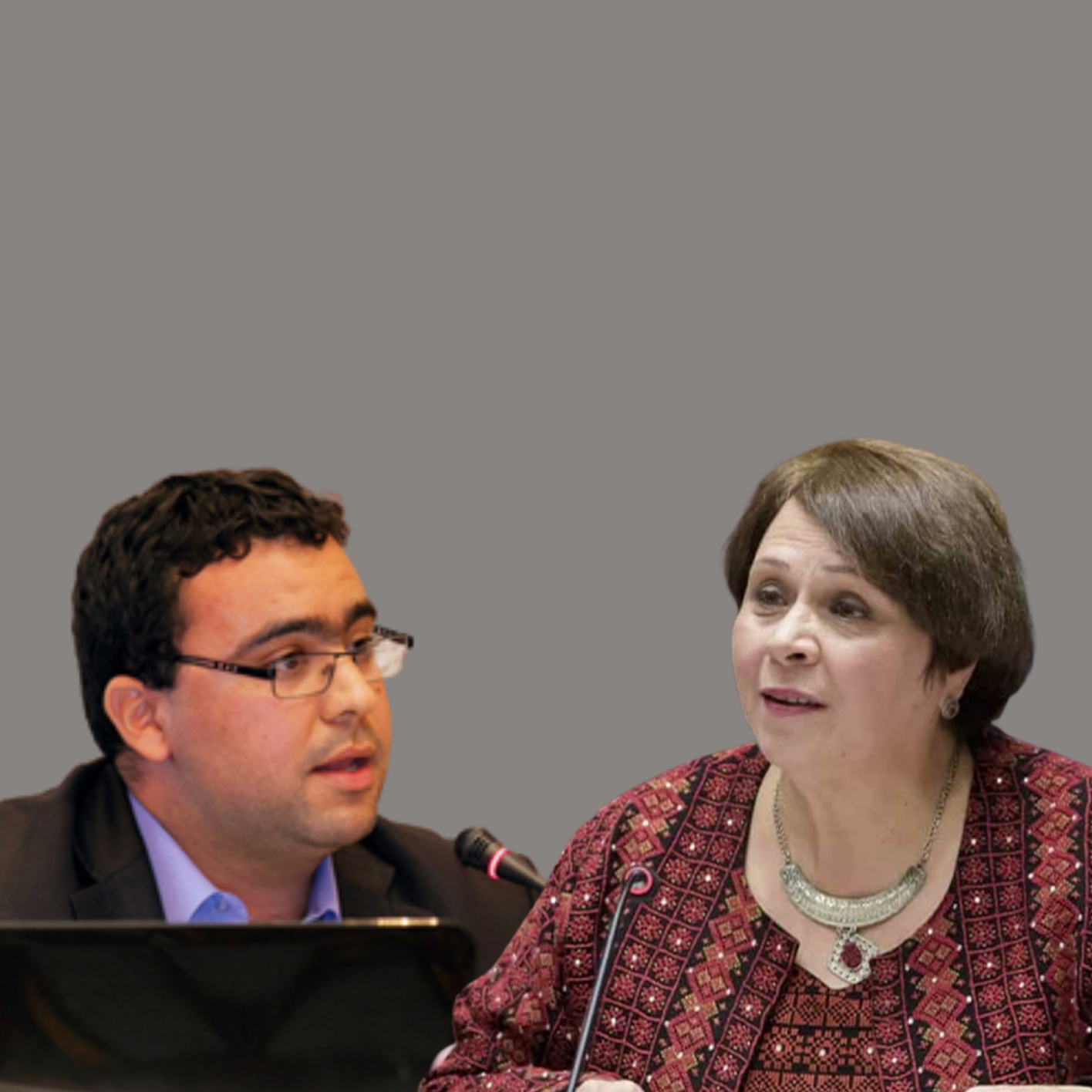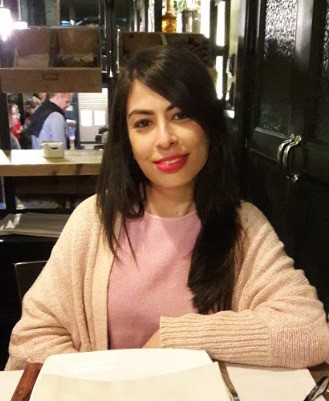
- The decision by the European Court of Justice to label Israeli settlement products is binding; we hope it will evolve into a ban on import
- The decision has important political implications, which is that Israeli settlements are illegitimate, illegal and in violation of international law
- We hope this decision will be followed by European recognition of a Palestinian state on Palestinian land occupied in 1967
- We will continue our diplomatic efforts and pressure for the release of a database of European companies working in Israeli settlements
- We are working in other international areas to secure similar decisions condemning settlements and for a boycott of Israeli settlement products
Introduction
Ambassador and Undersecretary of the Palestinian Ministry of Foreign Affairs Dr. Amal Jadou confirmed that the decision by the European Court of Justice to label Israeli settlement products is binding, saying she hoped that this would evolve into another political decision to ban the import of these products.
In an interview with “Hosted by MIFTAH”, Dr. Jadou stressed that the political implications of this decision were significant because it indicated a refusal to recognize the legitimacy and legality of settlements. She added that this could be an important precursor to European recognition of a Palestinian state on the 1967 borders.
Following is the full text of the interview:
**After the EU court decision to label settlement products, do you think this decision could evolve into a ban on importing these products?
We certainly hope so, especially after UNSCR 2334 was passed and made a discrepancy between the occupied Palestinian territories and Israel. Right now, we are mainly focusing on our political dialogue with European countries and the EU to formally request a ban on Israeli settlement products from entering European markets. This is a priority for us.
The European Court of Justice ruling is binding and opens the way for a new legal foundation in Europe on settlement products, which is why we believe it is a strong step in the right direction. These countries are obligated to abide by the decision. Directives were issued by the European Union in 2015 to label products made in settlements including their place of production, but several European countries, including some that are considered friends, did not abide by this restriction. That is why we hope this latest court ruling is binding and that all countries abide by it.
**What are the political and practical implications of this decision if it is actually implemented?
The implications are that Israeli settlement are illegitimate and illegal and are considered a violation of international law. This is why there must be repercussions from this decision on Europe’s political position. European countries should no longer have trade exchanges with settlements; when it imports its products, this is support for the settlements. Hence, the decision will have practical repercussions on Europe’s political position, which is that settlements are illegitimate and that Europe refuses to deal with them at the economic and trade level. This is an excellent step in the right direction and is also a reaffirmation of the official political position of European countries. It is a stepping stone for the political positions we want from European countries, first and foremost to recognize a Palestinian state on land occupied in 1967.
**Can we consider this decision an achievement at the Palestinian diplomatic level, especially after the statement made by US Secretary of State Mike Pompeo regarding Israeli settlements in the West Bank?
What I would like to say is that when Europe takes a cohesive and strong position, there are political repercussions for the positions it takes and Israel usually does not respond well to them. Evidence of this is what happened with Khan Al Ahmar. Everyone remembers when EU representatives, especially those from the five major countries, took a strong position on the issue. At the time, they told Israel that if these positions are sidestepped, there would be consequences. Israel was therefore forced to halt its measures against Khan Al Ahmar. So, when there is a strong positon from European countries in a certain direction, Israel usually thinks twice. This is because Europe has supported Israel in the past not to mention that the EU is Israel’s biggest economic partner, which means it can influence Israel’s positions. We always call on Europe and the EU to take bold and clear positions on Israeli policies that violate international law, first and foremost the occupation.
**Does the EU Court of Justice have the authority to oblige EU members to adhere to this decision?
The decision is binding for all EU countries.
**What are the economic ramifications of this decision on Israel itself?
The court decision speaks at length about colonialist settlement, saying that “Israel, as the occupying power, cannot transfer populations to and from the occupied territories.” It also says that the settlement enterprise prompted populations of foreign origin to live in the occupied Palestinian territories in flagrant violation of international law, adding that the existence of Israel does not change the legal status of the occupied territories in spite of illegal settlements and annexation. It also said the Palestinian people have the right to self-determination in their occupied territories. This is a very important legal document for our political discourse with Europe and world countries.
I hope this decision will have an economic impact on Israel, which is always trying to find ways of circumventing these decisions. It is our hope that European countries will be unbending in executing the law. This is also linked to the list we want the Human Rights Council to publish, which addresses European companies that work in Israeli settlements and which should not be operating in them given that they are in breach of international law.
**What do you think is delaying the publication of this list, in spite of Palestinian efforts?
The Palestinian leadership and Foreign Affairs Ministry are exerting tremendous efforts in the this regard. However, it is clear there are other forces pushing in the opposite direction. In the end, we hope justice will prevail since we are talking about the UN Human Rights Council, which is supposed to preserve and protect human rights in general. That is why we will continue our diplomatic efforts, pressure and mobilization with all countries in order for this database to be released.
**Can you shed light on the contributory role played by activists and European organizations at this level?
I have tremendous appreciation for the efforts made by civil society organizations supportive of the Palestinian cause, which by the way are champions of rights, justice, international law and the international system which is supposed to protect the rights of oppressed individuals, states and peoples. We have support and advocacy groups for Palestine in all European countries and around the world. I would also like to mention that there are some communities that work with civil society organizations and which come together to support our causes in the international community. We appreciate them, their work, their commitment to international law and their efforts to implement it.
**Does this decision reinforce the efforts of European friends and also the popular diplomacy in these communities?
It does reinforce international law and the applicability of this law. It also reinforces the centrality of international law and the work of these institutions, making it harder to attack organizations working towards the realization of rights.
**How did you deal with the Israeli response to the European Court of Justice, especially the warnings made by one of Netanyahu’s ministers in this regard?
We trust in the respect of European countries for international and European law. We also trust that such threats will not affect European countries respecting their laws and that they will continue to implement the court’s ruling.
**Do you expect Israel to put a lot of pressure on EU countries to not implement the decision?
Israel is constantly putting pressure on and influencing decision-making circles in Europe. It has a very active lobby there, but we are also putting efforts in this regard and are confident that Europe will abide by international law, international humanitarian law and its resolutions. These decisions were made by a European court, so European countries should abide by them.
**How will this European decision impact the cooperation agreement between Israel and the EU?
Article Two of the partnership agreement signed between Israel and the EU stipulates that the implementation of the law is predicated on Israel’s adherence to the principles of human rights. Of course, Israel violates these rights. It has been a long time since the European-Israeli partnership conference convened; several European countries say this is because Israel has not abided by the principles of human rights. I think this can be used as pressure on Israel so it abides by international law and the principles of human rights.
** How will this decision pave the way for other achievements at the political level, whether in the European other international arenas?
Achievements are accumulative. We at the Ministry of Foreign Affairs would like to invite the lawyer involved in this case so we can hear his take on what is happening. It is important we understand all aspects of it, its ramifications and how it will be implemented. What I would also like to say is that this strengthens the political position of European countries, which say that Israeli settlements are illegitimate, that Europe supports the right of the Palestinian people to self-determination on their land and that they will work to achieve the two-state solution.
**Are there any other global blocs besides Europe we can work with in the same context?
Yes, we are doing this with Asian countries and a number of Latin American countries as well. The thing is, Europe has significant clout given its special relationship with Israel and the United States, which is why we depend on the EU’s political role so much.








